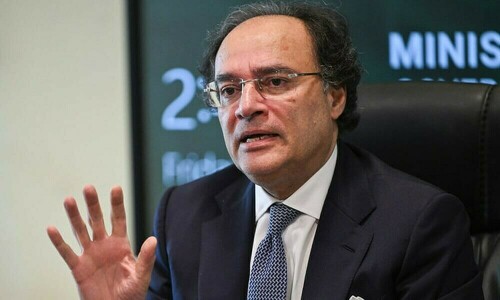Pakistan Seeks Expansion of Currency Swap Line with China
Finance Minister Muhammad Aurangzeb revealed that Pakistan has formally requested China to increase its existing currency swap facility by 10 billion yuan ($1.4 billion). He also indicated plans to introduce a Panda bond before the close of the year.
Aurangzeb, speaking to Reuters during the International Monetary Fund and World Bank Group meetings in Washington, mentioned Pakistan already possesses a 30 billion yuan swap line.
“We’re aiming to reach 40 billion renminbi… and have submitted the request,” Aurangzeb stated.
China’s central bank has been actively encouraging currency swap arrangements with developing economies such as Argentina and Sri Lanka.
Pakistan has also progressed in its initiative to issue its inaugural Panda bond – a yuan-denominated bond sold within China. He noted that discussions with the heads of the Asian Infrastructure Investment Bank (AIIB) and the Asian Development Bank (ADB), the institutions potentially backing the issue, were encouraging.
Economic Reforms and International Support
“We aim to broaden our lending sources and have achieved considerable progress in that regard. We anticipate launching an initial offering this year,” he explained.
Aurangzeb anticipates the IMF executive board’s approval in early May regarding the Staff Level Agreement on the new $1.3 billion arrangement under a climate resilience loan program, along with the initial review of the ongoing $7 billion bailout initiative.
The IMF board’s endorsement would release $1 billion under the program, which Pakistan secured in 2024 and has played a crucial role in stabilizing the nation’s financial situation.
When questioned about the possible economic repercussions from the tensions with India following the deaths of 26 individuals at a tourist location earlier in the month, Aurangzeb acknowledged that the situation was “not beneficial.”
Economic Growth Projections
Following the incident, India and Pakistan implemented several measures against each other. Pakistan restricted its airspace to Indian airlines and halted trade relations, while India suspended the 1960 Indus Waters Treaty governing water distribution from the Indus River and its tributaries.
Trade between the two nations had previously declined due to past conflicts, reaching only $1.2 billion the previous year.
Aurangzeb projected economic growth of approximately 3% for the current fiscal year ending in June 2025, with expectations of 4-5% growth the following year, and a target of 6% thereafter.



Comments (0)
No comments yet. Be the first to comment!
Leave a Comment